Backroads and Ballplayers #6
Stories of the famous and not-so-famous men and women from the days when baseball was "Arkansas' Game." Always free and always short enough to finish in one cup of coffee.
Dom Takes the Big Leagues by Storm and Life on the Backroads of Baseball
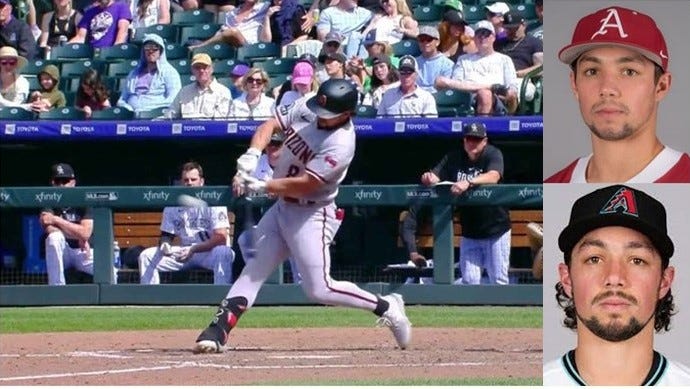
Remember when Dominic Fletcher arrived in Fayetteville to play his first year for the Razorbacks? He looked all of 13! Now he looks 20.
On April 30, 2023, Fletcher made his first appearance in a major league game. He was the 22,209th player to reach the majors and the 66th former Razorback to play in the big leagues, although Baseball Reference.com may have missed some. With no fear of overstatement, Fletcher’s first two weeks in the “show” began the most amazing debut for any former Razorback baseball alum in Arkansas history.
He doubled in his first major league at-bat…a pretty good start! He got two hits in his second game two days later, and two singles in his next two starts. Fletcher went four for ten in the last two games of his first big-league week and ended his initial six games hitting .429, with two doubles, two RBIs, and an OPS over 1.000. Then he got hot!
In his next six games, he had nine hits in 18 at-bats. Among those nine hits were a double, a triple, and two home runs. From May 8 through May 13, Fletcher collected 11 RBIs and raised his batting average to .462 and his OPS to 1.500. Dominic Fletcher is the talk of major league baseball. His fans back in Arkansas love seeing that boyish smile again.
Meanwhile, on the backroads of professional baseball:
Minor league baseball is not a fantasy. It's a profession. A cruel one that justifies its cruelty by offering a golden carrot so valuable and coveted that young men will put their blinders on and drudge after it until they get their teeth on it or get put down trying. Dirk Hayhurst, bleacherreport.com - May 2014
In news that did not make the headlines: Former Crossett native and Boston Red Sox outfielder Bryant Nelson caught on with the Mahoning Valley Scrappers. Former MVP runner-up Daniel Murphy is playing in New York for one of Nelson’s former teams, and it seems Blaine Knight is out of a job. Life is tough on baseball’s back roads. It “features” bus rides, pink slips, cold food, and low pay, but there are still plenty of Nelsons, Murphys, and Knights out there. More about these guys later.
Rube Robinson - “Free Agent”
On August 12, 1918, a farm boy from White County, Arkansas, whom most baseball people called “Rube Robinson,” beat the Boston Red Sox 2—1 in a pitcher’s duel against Boston’s ace, Babe Ruth. The next week Rube picked up his check from the New York Yankees and came back to Arkansas. He really did not want to be there anyway. He did not like the manager, big cities were not his thing, and he only played for the Yankees that season because the Little Rock Travelers were not available.
Robinson was a mysterious fellow to the baseball men of those days. He played where he wanted to play, for teams he chose to play for, and, by the way, Rube Robinson was not his real name. He had the nickname, “Rube,” often reserved for uneducated country bumpkins. Although he fit the uneducated county image, he was a genius on the mound and shrewd enough to defy the baseball establishment to do things his way.
John Henry Roberson was born in the White County, Arkansas, community of Floyd on August 16, 1887, but upon his arrival in professional baseball careless sportswriters inadvertently gave him a new identity. “Rube Robinson” made his pro debut with the Argenta Shamrocks of the Arkansas State League in July 1908, but unaccustomed to being “owned” by a team, he soon became disenchanted with the Shamrocks and headed to Newport, closer to his White County farm. One account hints that when Newport played in Argenta, Rube left town with the visiting team. After abandoning the Shamrocks in mid-season he became the Newport Pearl Diggers best pitcher, finishing the season with a 9—5 record.
From 1909 through 1911, Robinson won 70 minor league games for teams in Jonesboro, Newport, Fort Worth, Texas, and Caruthersville, Missouri. His best season was the 1911 campaign with Fort Worth in the Texas League. Although he was late to spring training due to a self-reported case of measles, a malady that would allegedly delay him in later spring trainings, Robinson posted a landmark Texas League season. He won a league-leading 28 games and pitched over 300 innings for the Panthers before being called up to the Pittsburgh Pirates in September.
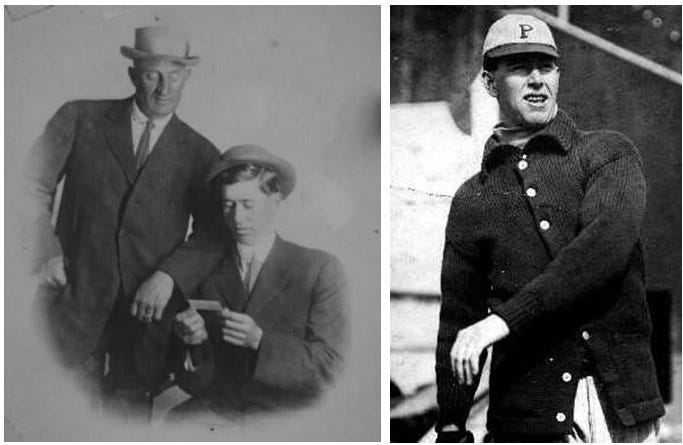
He made 5 relief appearances for the Pirates late in the 1911 season and posted an ERA under 3.00. The Pirates had high expectations for the Arkansas farm boy and the Pirates’ evaluation proved correct. In the next two full seasons, Robinson won 25 games and posted a team-leading 2.34 ERA. One local newspaper boasted, [Robinson] “was developing into one of the best pitchers in the country.”
In his years in Pittsburgh, young Robinson formed an unlikely friendship with the legendary Honus Wagner, who in his 40s, was in the twilight of a remarkable career. While other players frequented bars and nightclubs, “Old Hans” and Rube chose amusement parks and fishing. Robinson recalled in a later interview that Wagner loved fishing so much that he “would fish in places where there weren’t any fish.” Robinson was often by his side.
Robinson was traded to the St. Louis Cardinals in 1914 and spent two unhappy seasons in the Cardinals’ bullpen. When Cards’ manager, Miller Huggins, tried to option him to San Francisco of the Pacific Coast League for the 1916 season to work on his relief pitching skills, Rube simply refused to go. He declared he would choose to stay home and pitch for the Floyd town team unless he could pitch for Little Rock.
Thus continued the saga of a major-league-quality pitcher who consistently refused to pitch where assigned if it did not meet his wishes. His arbitration strategy was unique and effective. If a team purchased his contract or traded for his services, he would simply refuse to go. When the big league club realized that “No thanks I am going back to Floyd,” was not a bluff, the Cardinals reluctantly optioned him to Little Rock in July.
Rube went 11—1 for his chosen Travelers in the last half of the 1916 season. The Cards recalled him in August, but once again he refused to leave the Travs. Even in 1916, refusing to be called up to the major leagues was unprecedented.
In 1917, Robinson won 21 games for Little Rock, and in the spring of 1918, the Cardinals sent him a new contract for $300 per month to pitch for the big club. The contract remains unsigned in the family scrapbook. For all or part of the next 13 seasons, except the two months he spent with the Yankees when the Travs ceased operations due to World War I, Robinson would be the ace of the Little Rock Travelers.
Robinson made one more brief appearance in a major league uniform that summer of 1918 when the termination of the Southern League season left him no choice. He proved once again, that he had big-league skills, but not even a victory over the soon-to-be-famous Babe Ruth could tempt him to choose New York over Little Rock.
The Southern Association and the Little Rock Travelers resumed play in 1919, but Robinson did not report when the Travelers opened spring training. In a medical anomaly that must have astounded the local medical community, Rube announced that, as in the spring of 1911, he once again had measles. Undoubtedly, Robinson recovered. He won 23 games for a Travelers’ team that finished second in the league in 1919.
Robinson won 26 games for the Little Rock Travelers’ first pennant-winning team in 1920. The Southern Association Champions of that historic season drew 165,000 fans to Kavanaugh Field, setting an attendance mark that would stand for more than thirty years. Little Rock and the nation were ready for good times after a demoralizing war effort and the shadow of the Spanish Flu Pandemic, and the 1920 Little Rock Travelers supplied those times. Rube Robinson, a young man with major league talent and a rural heart, gave the Travs the best pitcher in the Southern Association.

Robinson posted 17 wins in 1921 and won 26 again for the 1922 Travelers. From 1924 to 1927, now in the twilight of his career, Rube had a record of 48—70 for Traveler teams that routinely finished near the bottom of the league. He was traded to Atlanta early in 1928 where he wrapped up his career by pitching 40 innings for the 1929 Atlanta Crackers. Robinson turned 42 years old during that final season.
BaseballReference.com credits (Hank) Robinson with 297 pitching wins, but many of the totals for the seasons early in his career are incomplete. For players with Arkansas connections, the Arkansas Baseball Encyclopedia is more reliable. Robinson’s actual win total is likely close to 330 wins, with 190 of that total earned while pitching for the Travelers.
Robinson was inducted into the Arkansas Sports Hall of Fame in 1962 as John Henry Roberson and the Texas League Hall of Fame in 2011 as Rube Robinson. Roberson spent the last years of his life working for the Arkansas Highway Department. He died in 1965 in North Little Rock. Robinson still holds most of the Arkansas Traveler pitching records. He is considered among the greatest minor league pitchers of all time.
Jim Bailey, a highly respected Arkansas Gazette sportswriter, described Rube’s lofty status in a tribute from 1991. “If the Travelers ever assemble on a Field of Dreams, Rube will surely be the pitcher.” According to Bailey, “Lefthander Rube Robinson didn’t flunk out of the major leagues, he simply put in for a transfer.”
On the Road with Bryant Nelson
I love the Bryant Nelson story. It is the kind of pro sports story that can only happen in baseball. When a player’s NBA days are over or their NFL career ends, the game is finished with them. Determined to stay in the game he loved, Bryant Nelson played more professional baseball games after he left the big leagues than he played to earn his way there.
Arkansas baseball fans may not know a lot about Bryant Nelson from Crossett, Arkansas, but they should. The more fans know about the former major leaguer the more they will appreciate his love of the game. The phrase “former major leaguer” is a designation that moves a player from a good baseball player to the elite fraternity of about 20,000 who have made the major leagues since they started keeping up with those numbers about 150 years ago. Bryant Nelson’s name is on that prestigious list.
Nelson’s big league career consisted of 25 games for the 2002 Boston Red Sox. He had played more than 1,000 minor league games to get there, and he would play more than 2,700 professional games by the time he played his last full season with the Maryland Blue Crabs in the Atlantic League.
Nelson was chosen in the major league draft in 1992 after graduation from Crossett High School, but a junior college coach named Dave Van Horn convinced the high school pitcher/shortstop to concentrate on the infield at Texarkana Junior College. He was drafted again in the 1993 draft by the Houston Astros and began his professional career in 1994 with Auburn, New York, in the New York Pennsylvania League.
Slowly but surely he made his way through the minor leagues. At first, his hitting was marginal, but by 2001 he had found his swing at the minor league’s highest level. In AAA leagues from 2001—2003, he batted above .300 and averaged double-digit home runs. When an injury to Manny Ramirez sent the Boston Red Sox looking for a replacement from their minor league system in May 2002, their best choice was Bryant Nelson.
Nelson played 25 games that summer filling Ramirez’s roster spot. He batted 34 times, collected nine base hits, drove in a couple of runs, and posted a .265 batting average, not bad, but not attention-getting. That 25-game visit to “the show” would be his last. He played a year in the White Sox organization and another in the Toronto Blue Jays system, but by 2005 no major league club was interested. However, he still had choices.
Over the next 11 seasons, Nelson played in Venezuela, Mexico, Taiwan, Italy, and more than 1,000 games with various teams in that East Coast loop called the Atlantic League. The 25-year-old ATL regularly draws ex-major leaguers looking for a second chance and features teams with names like Revolution, Honey Hunters, and Dirty Birds. Nelson is one of the league’s all-time favorites. He remains the Atlantic League career leader in games played, at-bats, and hits. He was a league all-star in 2006, 2010, 2013, and 2016 and was chosen for the league’s Silver Anniversary All-Time Team.
Along the way, Bryant Nelson became a student of the game and a respected instructor. He will be in uniform this summer as the hitting coach of the Mahoning Valley Scrappers in the Collegiate Draft League. Although most of his seasons were on the backroads of pro baseball, he played more professional baseball games than George Kell, more than Bill Dickey, and more than Travis Jackson.
By the way, if you find yourself in New York this summer, you can catch former All-Star Daniel Murphy in the Atlantic League playing for the Long Island Ducks. Murphy was second in the 2016 National League MVP vote. Why is a guy like Murphy riding buses in the Atlantic League? I doubt he needs the money. He made more than 79 million as a big-leaguer. It is simply his best choice to continue to play the game.
A Tribute to Blaine Knight
On March 26, the Baltimore Orioles released their 2018 third-round draft choice, Blaine Knight. As of today, he has not shown up on another roster that I can find. It is decision time for Blaine.
It could well be that Blaine Knight has pitched his last professional game, but nothing can diminish the affection Arkansas Razorback fans feel for our guy who posted an undefeated season as the team’s Friday night starter in 2018. All Knight did that season was go 14—0 overall with a 2.80 ERA. His SEC season featured wins over the MLB’s number-one draft choice, Casey Mize (Auburn), and 18th-round selection, Brady Singer (Florida). He won two games in the College World Series and was chosen as a starting pitcher on the National Collegiate Baseball Writers All-America first team.
By the way, in 1941, the Hot Springs Bathers had a pretty good shortstop named Lloyd Heitman. Heitman was in the lineup every day and hit 16 homers, not bad for a shortstop. Heitman hailed from down in Midway, in Hot Spring County. He continued to play until 1947, with a few years out serving in WWII, but Heitman’s big-league call never came. Lloyd Heitman was Blaine Knight’s great-grandfather.
“You spend a good piece of your life gripping a baseball and in the end, it turns out that it was the other way around all the time.” Jim Bouton
Missed a post? - Link




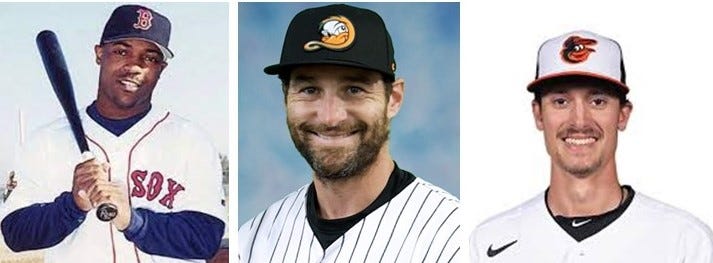
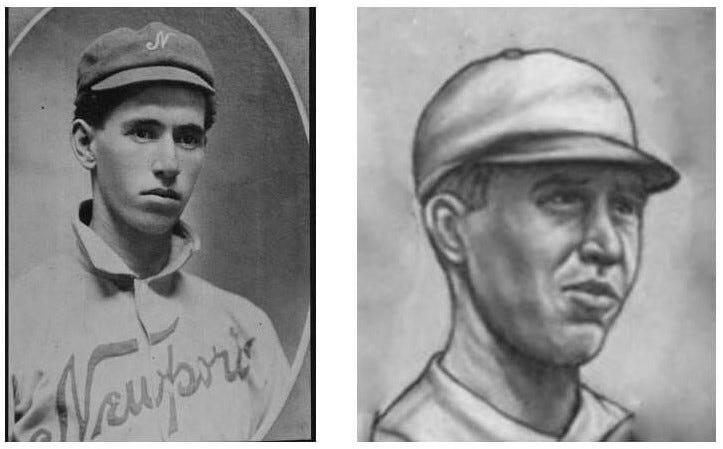
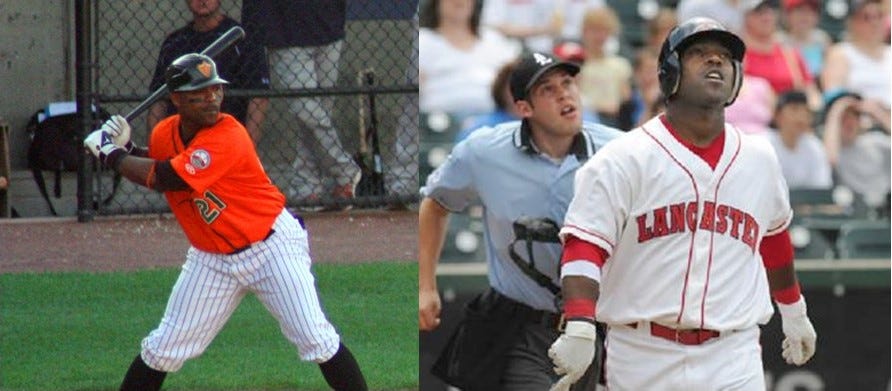
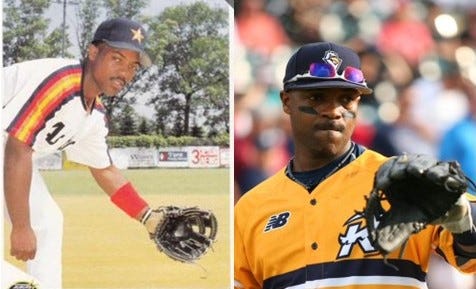

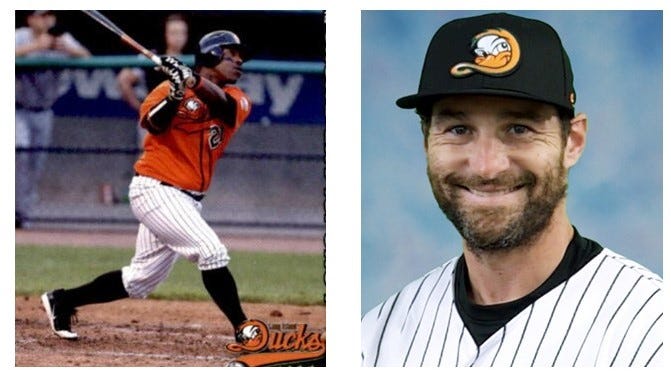

I really enjoyed this --AND I LEARNED "A LOT" OF NEW INFORMATION.
GREAT!